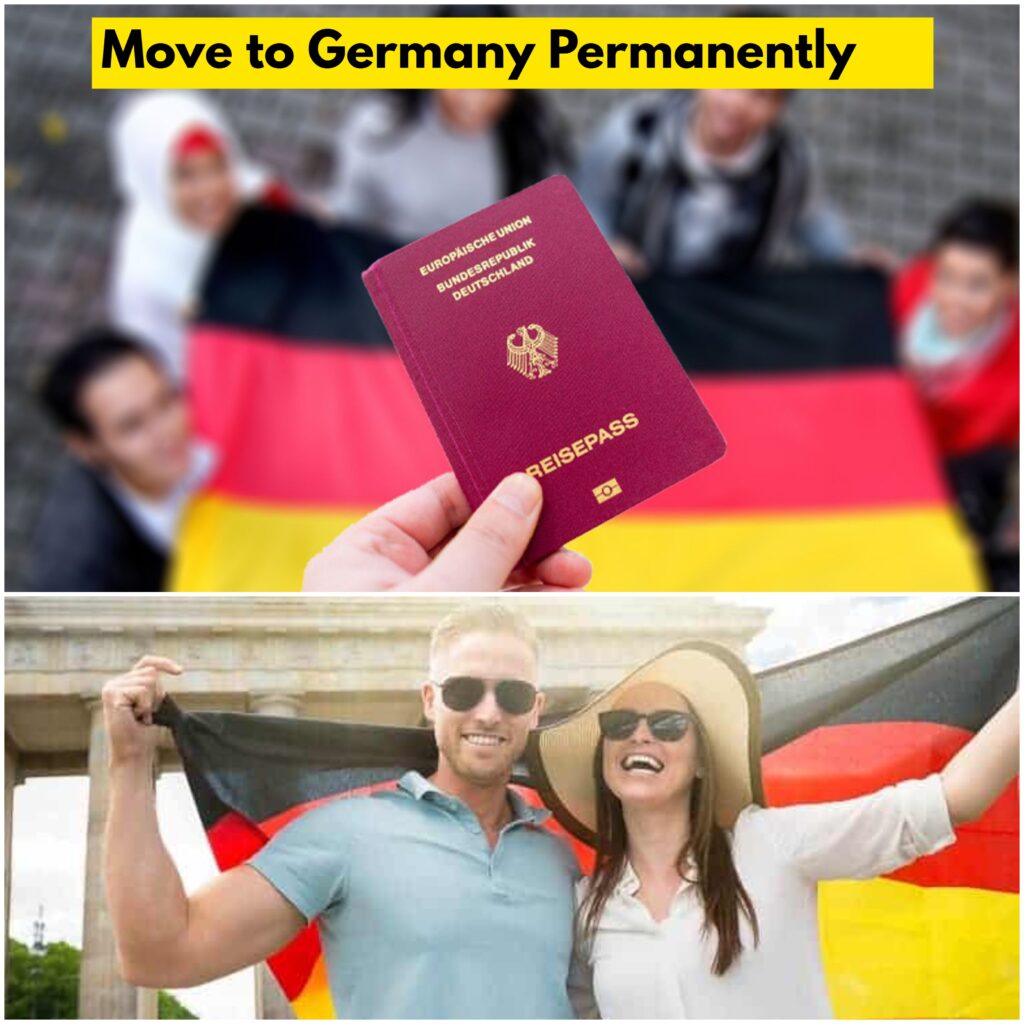A number of procedures and requirements must be met in order to get citizenship in Germany.
This is a broad analysis of the procedure,

How to Get Citizenship in Germany?
- Determine Your Eligibility
By Birth: You may automatically become a German citizen at birth if at least one of your parents is a German citizen.
By Descent: You may already be a German citizen if you were born to German parents overseas, but you could also need to register your birth with the German government.
Naturalization: After fulfilling specific requirements, foreign nationals residing in Germany may be eligible for naturalization.
Work visa for Germany – CLICK HERE
Residency Requirement
Duration: Generally, you must have spent at least 8 years (or 7 if you have taken an integrating course) in Germany.
Permanent Residency: Usually you must have either an EU long-term resident permit or a permanent residence permit (Niederlassungserlaubnis).
Language Proficiency
You must show sufficient knowledge in German, often at the Common European Framework of Reference for Languages (CEFR) B1 level.
Financial Stability
- Self-Sufficiency
You and your family must be self-sufficient and not dependent on social support (such as social assistance or unemployment benefits II).
Criminal Record
- Good Conduct
A significant criminal record is not something you should have.
Serious crimes can prevent you from becoming a citizenship in Germany, but small offenses might not disqualify you.
Citizenship Test
- Test
A citizenship test (Einbürgerungstest) covering German law, society, and culture may be required of you.
To pass, you must properly answer at least 17 of the 33 questions.
Read: How to Invest in Australian Bonds?
Dual Citizenship
- Restrictions
Since there are few exceptions (such as for EU citizens, Swiss nationals, or if your native country does not permit renunciation of citizenship), Germany normally does not permit dual citizenship for adults who naturalize.
Application Process
Documentation: Take necessary documentation such as identification, evidence of residency, proof of financial stability, proof of language competency, and any other material that may be needed.
Submit Application: Send in your naturalization application (Einbürgerungsantrag) to the local Einbürgerungsbehörde, or citizenship office.
Fee: Cover the application fee, which is often €51 for kids and €255 for adults.
Oath of Allegiance
- Ceremony
You might have to swear an oath of allegiance to the German constitution and attend a citizenship ceremony if your application is accepted.
Receive Your Certificate
- Certificate of Naturalization
You will get a certificate of naturalization (Einbürgerungsurkunde) upon completion of all procedures, hence making your citizenship in Germany.
Special Cases
Marriage to a German Citizen: The residency requirement may be lowered to 3 years if you are married to a German citizen.
Refugees and Stateless Persons: Provisions for refugees, stateless people, and persecuted individuals may alter or be added.
Important Notes
Renunciation of Previous Citizenship: Before getting German citizenship, you may be mandated to give up your previous citizenship or citizenships.
Consult Authorities: For individualized guidance, it is best to speak with a legal professional or the local citizenship office as the procedure can change according on specific circumstances.
Specific requirements may differ; this is simply a basic guideline for citizenship in Germany.
For the most precise and current information, you should always consult with the right German authorities.
Read: How do I invest in mutual funds in Canada?